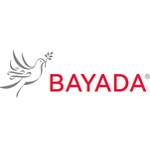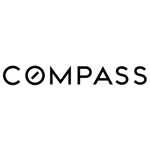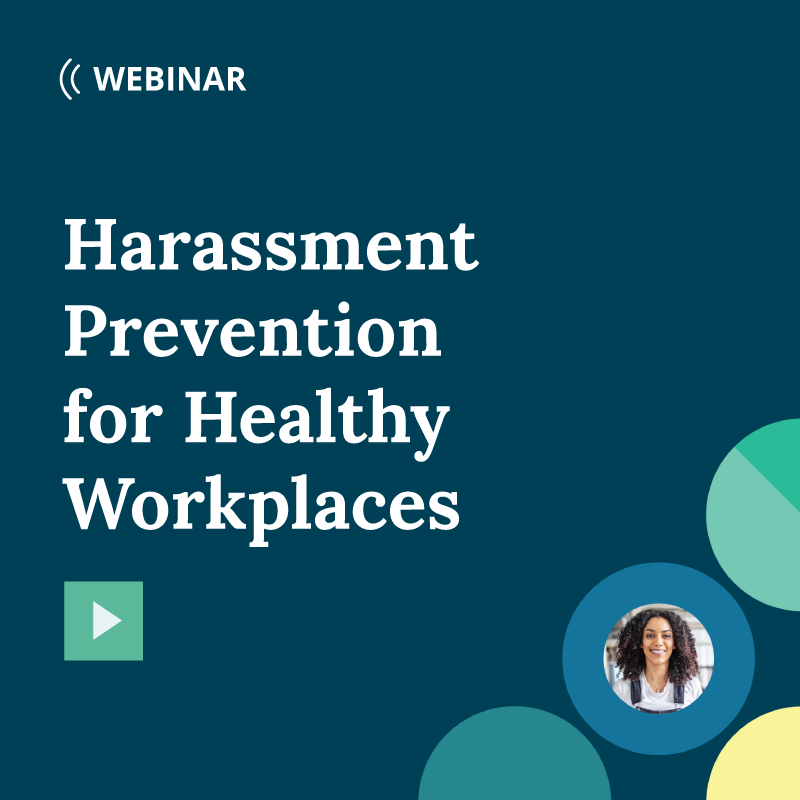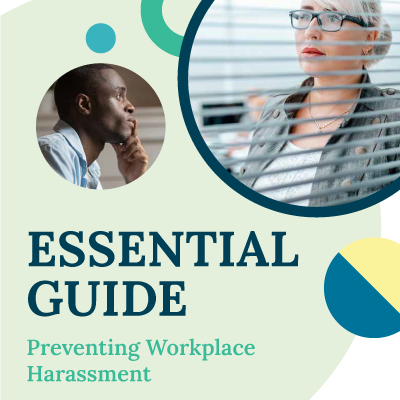SEXUAL HARASSMENT TRAINING
Illinois Sexual Harassment Training
Syntrio’s Illinois anti-harassment training exceeds the Illinois sexual harassment training requirements enacted in 2019 by the Illinois State Legislature and enforced by the Illinois Department of Human Rights (IDHR).
Preview the U.S. Workplace Harassment and Discrimination Training Course
6,500+ Organizations Trust Syntrio to Improve – You Can Too!













































Illinois Harassment Training
Sexual harassment law in Illinois includes a relatively new set of Illinois sexual harassment training requirements created in 2019. That year, the Illinois state legislature enacted legislation to combat sexual harassment in the workplace by requiring all Illinois employers to develop a sexual harassment policy and conduct annual workplace sexual harassment training. In 2022, many Illinois employers also found themselves under the jurisdiction of a Chicago sexual harassment ordinance, requiring them to conduct Chicago sexual harassment training annually. The body of law aimed at preventing harassment and discrimination in the workplace in Illinois and Chicago has grown complicated and challenging to comply with.
To fully understand and comply with Illinois sexual harassment training law and its Chicago ordinance counterpart, it is also necessary to develop an understanding of federal sexual harassment law and federal anti-discrimination law, as well as the impact of the United States Equal Employment Opportunity Commission (“EEOC”) sexual harassment guidance on workplace sexual harassment. Illinois has a dual-filing system for discrimination complaints arising in the state. Therefore, the EEOC (a federal agency charged with investigating and prosecuting charges of sexual harassment) often determines whether to file a lawsuit on behalf of an individual who complains they were sexually harassed in violation of Illinois sexual harassment law or federal anti-discrimination and anti-harassment law.
FOR EMPLOYERS WITH PHYSICAL LOCATIONS IN CHICAGO OR LICENSED TO DO BUSINESS IN CHICAGO, CLICK HERE
Syntrio’s Illinois U.S. Workplace Harassment and Discrimination Training
- Experienced: Syntrio has been developing workplace harassment training since 2002.
- Compliant: Complies with all relevant Illinois regulatory requirements
- Engaging: Engages learners through short, live-action stories and practical exercises.
- Comprehensive: Addresses all required topics plus contemporary issues, such as workplace relationships, bystander intervention, diversity, equity, and inclusion.
- Flexibility: Versions for managers (1 hour) and non-managers (45 minutes); other versions that incorporate Illinois with additional state training for easier deployment for multi-state businesses.
- Industries: Six industry verticals, including office/general, healthcare, industrial, hospitality, retail, and higher education.
Federal Harassment Law
Federal anti-discrimination laws encompass the national sexual harassment law, from which state and local sexual harassment requirements and mandatory sexual harassment training laws have evolved. These federal laws are also the set of statutes from the United States EEOC sexual harassment policy on enforcement are derived from. In states such as Illinois, where sexual harassment and job discrimination charges are most commonly filed administratively with the EEOC before going to court, the agency and its guidance play a pivotal role in anti-discrimination and anti-harassment litigation. The federal anti-discrimination laws prohibit employment discrimination, sexual harassment in the workplace, and other forms of workplace harassment and set the floor from which state and local laws can enact greater protections against job discrimination and workplace harassment.
The most notable federal employment law covering discrimination and harassment in the workplace is Title VII of the Civil Right Act of 1964, which covers employers who employ or have employed 15 or more employees for each working day in 20 or more calendar weeks in the current or preceding calendar year. In addition to prohibiting employment discrimination, courts have held that Title VII prohibits harassment in the workplace, sexual harassment in the workplace, hostile environment sexual harassment, and other forms of employment discrimination and workplace harassment, which in recent years has become a key focus of attention on federal anti-discrimination laws and other related employment laws (including an increased emphasis on mandatory workplace harassment training).
Under the federal employment law scheme, harassment in the workplace is a form of job discrimination that occurs when unwelcome conduct (such as verbal sexual harassment or physical, sexual harassment) that is based on race, color, religion, sex (including sexual orientation, gender identity or pregnancy), national origin, age (over 40), disability occurs. Harassment in the workplace becomes illegal where: a) enduring the offensive conduct becomes a condition of continued employment, or b) the conduct is severe or pervasive enough to create a hostile or intimidating work environment that a reasonable person would consider hostile or abusive.
As important as learning what workplace harassment is, it is also essential to understand that workplace harassment (including sexual harassment at work) does not include petty slights, annoyances, and isolated incidents. Unless severe, such trial verbal sexual comments or other offensive behavior may not rise to the level of illegal harassment in the workplace.
Illinois Sexual Harassment Law
Illinois is known nationally as an employee-friendly state among employment law analysts. While many (arguably most) workplace sexual harassment cases stemming from incidents in Illinois arise under the federal anti-discrimination law, the Illinois Human Rights Act is another substantive body of law prohibiting sexual harassment in the workplace and employment discrimination. The Illinois Human Rights Act includes all protected classes specified by the federal anti-discrimination law. Also, it adds additional protection against job discrimination or workplace harassment based on conviction status and other vital areas.
Section 2-109 of the Illinois Human Rights Act is the Illinois anti-discrimination law that requires all Illinois employers to conduct sexual harassment training. That section of the Illinois anti-harassment law contains the specific Illinois sexual harassment training requirements. Given Chicago has its ordinance requiring sexual harassment prevention training, it is critical for organizations to consider all aspects of federal sexual harassment law, Illinois sexual harassment law (and sexual harassment training law), and potentially Chicago sexual harassment training law when making choices as to how and when to provide sexual harassment prevention training to your workforce.
Categories of Sexual Harassment
Under federal and Illinois anti-discrimination and anti-harassment laws, there are two categories of sexual harassment in the workplace. They include:
“Hostile Environment Harassment,” which refers to unwelcome comments or conduct based on sex that is either severe or pervasive such that they unreasonably interfere with an employee’s work performance or create an intimidating, hostile, or offensive work environment that alters the conditions of employment; and
“Quid Pro Quo sexual harassment” occurs when a job or promotion is explicitly or implicitly conditioned on an applicant or employee’s submission to sexual advances or other conduct based on sex.
Importantly, hostile environment harassment can occur based on any protected category and need not be restricted to individuals who feel they have been sexually harassed. As such, it is necessary for Illinois sexual harassment training to cover such issues as race harassment to comply with Illinois sexual harassment training requirements fully.

EMPLOYMENT LAW: HARASSMENT AND DISCRIMINATION COURSE
COMPENSATION AND BENEFITS
Meal & Rest Break Training
Understanding the Family Medical Leave Act (FMLA)
Wage & Hour Basics
CORRECTIVE ACTION
Avoiding Wrongful Termination
Employee Discipline
DISCRIMINATION
Employment Discrimination: Maintaining a Fair Workplace
Employment Discrimination: Sex
Employment Discrimination: Race, Color, and National Origin
Employment Discrimination: Religion
Employment Discrimination: Age
Employment Discrimination: Disability
Employment Discrimination: Sexual Orientation and Gender Identity
Creating a Bully-Free Workplace
DISCRIMINATION ETHICAL SNAPSHOTS
Festival Time
The Job Interview
Up or Out
Unpleasant News
An Open Position
HARASSMENT
U.S. Workplace Harassment and Discrimination
Bystander Intervention and Awareness and Sexual Harassment
Bystander Awareness and Intervention for Chicago
Preventing and Addressing Sexual Harassment
Preventing Sexual Harassment
Preventing Workplace Harassment
Workplace Harassment and Bullying: Managing Threats to a Respectful Work Culture
California Preventing Workplace Harassment
Connecticut Sexual Harassment Training for Employees
Delaware Preventing Sexual Harassment
Illinois Preventing Sexual Workplace Harassment
Maine Preventing Sexual Harassment
New York Preventing Sexual Harassment
Campus Aware: Sexual Violence Prevention
Harassment: Ensuring a Respectful Workplace
Preventing Unlawful Harassment for Colleges and Universities
Preventing Unlawful Workplace Harassment for Federal Agencies
Multi-Jurisdiction Preventing Workplace Harassment
Canada Harassment and Violence at Work
U.S. Workplace Harassment - Chicago
SPEAK UP ETHICAL SNAP SHOTS
Speak Up - Feeling Uncomfortable A/B
Speak Up - Harassment A/B
Speak Up - Health and Safety
Speak Up - Offensive Remark A/B
Speak Up - Something Missing
HARASSMENT ETHICAL SNAPSHOTS
The Viral Email
Jack and Dani Went Up a Hill
Third-Party Harassment
Making a Complaint
Making a Complaint 2
The Panda
Talking Sports
Unexpected Consequences
An Open Position
Workplace Disrespect?
A Very Important Client
A Very Important Client (B)
A Very Important Client (C)
Social Tony
Too Close for Comfort (A)
Too Close for Comfort (B)
Bullying
Workplace Harassment
Sexual Harassment
INVESTIGATIONS
RECRUITMENT
Legal Aspects of Interviewing and Hiring
RETALIATION ETHICAL SNAPSHOTS
Retaliation
Rocking the Boat
SUBSTANCE ABUSE
Managing Substance Abuse in the Workplace
ILLINOIS WORKPLACE HARASSMENT LAW HAS BROAD APPLICABILITY
No matter the category, sexual harassment and other forms of harassment in the workplace are a severe issue in Illinois, and protections extend to applicants, employees, and “anyone performing services for remuneration within [the] state.” Therefore, harassment protections in Illinois extend to people performing work for an organization in Illinois, such as unpaid interns, professional relationships, and independent contractors. Likewise, mandatory training requirements for Illinois harassment training and Illinois sexual harassment training apply to most (if not all) of the workforce in Illinois, except independent contractors, whom Illinois recommends using the sexual harassment training requirements but does not require sexual harassment training in Illinois.
Illinois Sexual Harassment Training Content Requirements
Illinois employers providing sexual harassment training are required to produce an anti-harassment program containing (at a minimum) the following elements:
- An explanation of sexual harassment;
- Examples of conduct that constitutes unlawful workplace sexual harassment;
- A summary of Illinois state and federal statutory provisions on workplace harassment and sexual harassment in the workplace, including available remedies to victims; and
- A summary of the responsibilities of employers for prevention, investigation, and corrective measures of sexual harassment in Illinois.
Acceptable Means of Complying with the Illinois Sexual Harassment Training Requirements
While the Illinois sexual harassment training law makes clear the obligation of the Illinois Department of Human Rights to create a model sexual harassment training program, the state agency’s website makes it clear that such model sexual harassment training programs are merely a template from which employers should expand upon to include further examples of hostile environment harassment, other forms of workplace sexual harassment, and other types of workplace harassment.
Syntrio’s Illinois sexual harassment training courses incorporate and expand upon all content considered by the IDHR in its template Illinois sexual harassment training documents. Our courses are fully compliant with the state’s sexual harassment training law. Further, Syntrio’s courses comply with the additional Illinois requirement that employers in the restaurant and bar industry must provide examples using terminology aimed at the restaurant and bar industry.
STATE-MANDATED HARASSMENT TRAINING REQUIREMENTS
Several states have enacted mandatory training laws that require employers to provide sexual harassment training to their managers and employees.
Click on each state to learn more about Syntrio’s sexual harassment training products dedicated to exceeding compliance with mandatory training laws in each state. You will also learn about the requirements in that particular jurisdiction.
Preview the U.S. Workplace Harassment and Discrimination Training Course

Why Syntrio’s Sexual Harassment Training is Your Best Source of Compliance Training Requirements in Illinois
Syntrio has led online sexual harassment training for over 20 years.
Since its inception in the workplace harassment training market over 20 years ago, Syntrio has been aware that it needs to be different to help employers not only comply with new Illinois sexual harassment training requirements but also to help employers empower their workforce to speak up and make an actual difference in workplace culture. The first anti-harassment training laws were enacted in the early 1990s when Syntrio began developing content intended to assist employers in educating their workforces on employment law, workplace harassment, and employment discrimination (including in states like Illinois that did not have mandatory sexual harassment training law at the time). As the 2010s drew to a close, more states enacted sexual harassment training laws, and Syntrio’s sexual harassment prevention training remains the sexual harassment prevention training relied upon by lawyers and HR professionals seeking training that will truly make a difference.
The Syntrio approach to Illinois Sexual Harassment Prevention Training is Different.
While the drive to provide sexual harassment training remains unchanged, expert views on the type and focus of sexual harassment training in the workplace and compliance training have evolved. Many of Syntrio’s competitors continue to provide “check the box” sexual harassment prevention training in Illinois (and elsewhere) that was primarily developed more than five years ago. These older harassment compliance training programs are often aimed at combating the harmful effects of workplace sexual harassment on the organization rather than on the person making the complaint. When anti-harassment training focuses on illegal sexual harassment and job discrimination and how companies can avoid liability rather than actual incident prevention and improve workplace culture, employees are proven more likely to tune out during the session. Syntrio knows legalistic, compliance-focused training does not resonate with employees and has instead developed sexual harassment prevention training that works.
The solutions that help to improve workplace culture and help reduce the number of incidents of workplace harassment involve incorporating elements of a full-scale program of civility and respect training and any other number of employee-focused employment law training that time and budget will allow improving organizational culture. Syntrio understands the time and budgetary constraints and therefore builds in elements of its more extensive library to its sexual harassment prevention training to give the learner something they can use for their benefit (and mental and physical well-being).
Syntrio knows that in a crowded market is essential to provide training that does more than comply with Illinois sexual harassment training requirements. As decision-makers, you also must make clear to your workforce that you care about their well-being. Therefore, a speak up and listen up a program aimed at empowering your workforce to report incidents is a critical aspect of any Illinois sexual harassment training program and is an essential aspect of a cultural improvement plan. Additionally, employers must provide training that teaches employees to respect one another and demonstrates the organization’s respect for its workforce. In addition to understanding what illegal sexual harassment is, employees must understand one another’s sensitivities and the organization’s understanding that everyone has individual needs. Syntrio’s Illinois sexual harassment prevention interactive training meets these lofty goals in a concise package.
HARASSMENT PREVENTION RESOURCES



